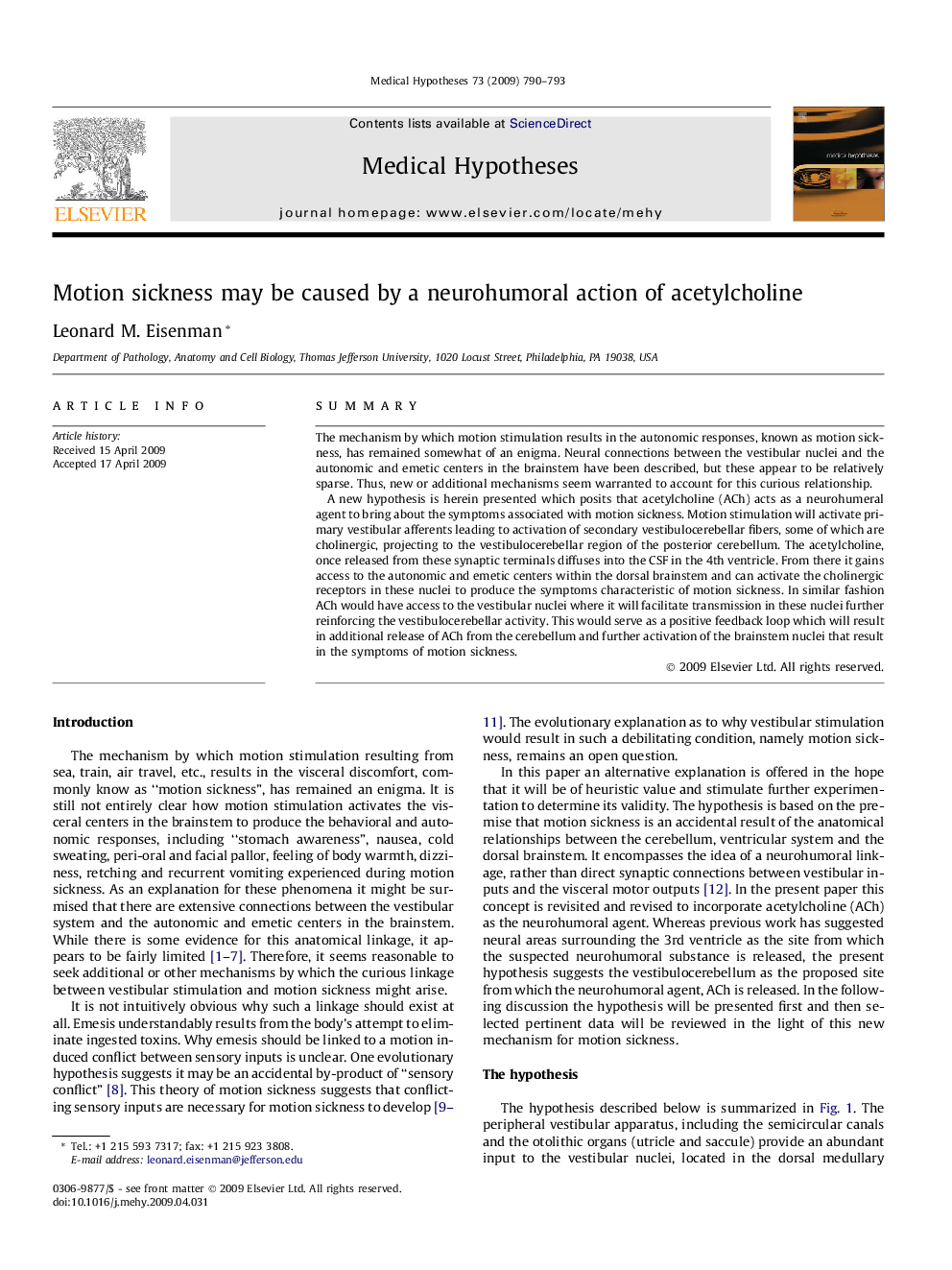| کد مقاله | کد نشریه | سال انتشار | مقاله انگلیسی | نسخه تمام متن |
|---|---|---|---|---|
| 2490575 | 1115069 | 2009 | 4 صفحه PDF | دانلود رایگان |

SummaryThe mechanism by which motion stimulation results in the autonomic responses, known as motion sickness, has remained somewhat of an enigma. Neural connections between the vestibular nuclei and the autonomic and emetic centers in the brainstem have been described, but these appear to be relatively sparse. Thus, new or additional mechanisms seem warranted to account for this curious relationship.A new hypothesis is herein presented which posits that acetylcholine (ACh) acts as a neurohumeral agent to bring about the symptoms associated with motion sickness. Motion stimulation will activate primary vestibular afferents leading to activation of secondary vestibulocerebellar fibers, some of which are cholinergic, projecting to the vestibulocerebellar region of the posterior cerebellum. The acetylcholine, once released from these synaptic terminals diffuses into the CSF in the 4th ventricle. From there it gains access to the autonomic and emetic centers within the dorsal brainstem and can activate the cholinergic receptors in these nuclei to produce the symptoms characteristic of motion sickness. In similar fashion ACh would have access to the vestibular nuclei where it will facilitate transmission in these nuclei further reinforcing the vestibulocerebellar activity. This would serve as a positive feedback loop which will result in additional release of ACh from the cerebellum and further activation of the brainstem nuclei that result in the symptoms of motion sickness.
Journal: Medical Hypotheses - Volume 73, Issue 5, November 2009, Pages 790–793